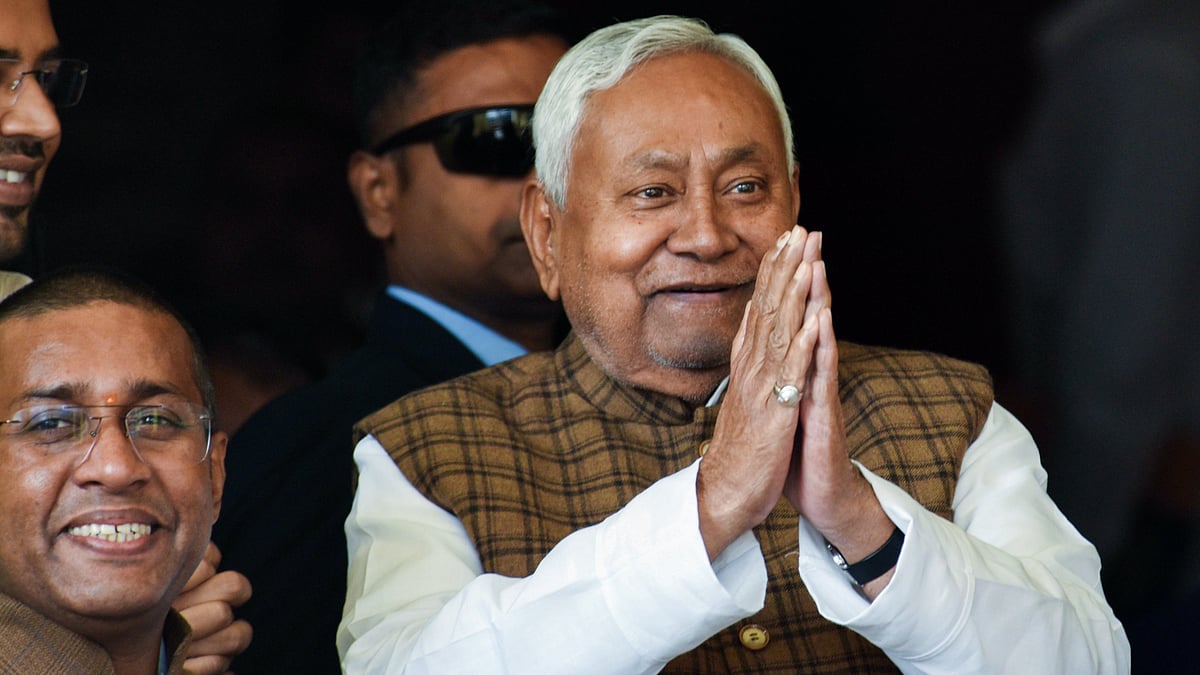"I just don’t get him,” she tells her best friend over a video call. “It’s like I can’t win with him. Nothing I do is good enough. He blows hot one minute and the next he’s as cold as ice. It’s getting to be too much. I can’t take these mood swings and mind games.” There’s no doubt that at some point or another, you’ve been on the giving or receiving end of unpredictable behaviour. While keeping the mystery alive in a relationship is great (when it comes to keeping things interesting), when unpredictability borders on toxicity and comes at a cost to your peace of mind, you have a problem.
This begs the question: Why do people play mind games, to begin with? According to Dr Sagar Mundada, a Mumbai-based consultant psychiatrist, sexologist and deaddiction specialist, “This behaviour is subjective. Depending on the situation, the stage of a relationship and individual personality traits, people play games to understand their partner's attraction towards them. It can also have a lot to do with how much power they hold over the other. Sometimes, it’s to enable them to feel good about themselves or create an air of mystery.”
Setting boundaries
No matter what form it takes — playing hard to get, blowing hot or cold or evoking jealousy — games in a relationship are mostly about power dynamics and control. In fact, if you look at it plainly, it’s manipulating a person or situation for selfish gains. “I remember being constantly pursued by my boyfriend. We were friends for two years before he wore me down and I said yes to dating him. However, he was far more attentive when we were just friends. It makes me wonder if it’s only ever about the chase,” says Maya Shah*, a 28-year-old artist from Ahmedabad.
“This is why having boundaries — physical and emotional — is important,” says Bhavya Arora, founder and CEO of New Thought Therapist, a social enterprise working to expand access to quality mental health support and simplified psychoeducation. “If you are conditioned to please people or have a tough time safeguarding yourself, setting boundaries will initially make you feel uncomfortable and guilty. However, stating clearly and directly early on what you’re okay with when it comes to mutual respect, is vital. It’s important to understand that emotional security is established over time and it is often rooted in consistency and predictability, acceptance and respect. Setting healthy boundaries early on can save you and your partner the conflicts that may arise from the lack of it,” Arora adds.
Coping mechanisms
Experts believe that those playing mind games often use these manipulations as a coping mechanism or means to help them address their fears around intimacy and commitment. However, it can save you immense grief if you can spot the signs at the get-go. “It helps in identifying certain behavioural patterns or personality traits. For example, inconsistency in behaviour (your partner can be too nice one moment and then aloof in the next), there are inconsistencies in how often you speak to each other (you could talk for an hour on phone one day and then not at all for days), your partner tends to get offended even if the littlest things don't go their way. It’s seriously troubling if you notice that your partner or spouse tends to threaten with extreme steps for trivial things. Over possessiveness, a history of multiple failed relationships, or a rough childhood are also aspects of personality that can be indicative of underlying intimacy issues,” Dr Mundada explains.
Mind games
It’s also possible to misconstrue concepts like breadcrumbing or ghosting as disinterest. Often, they’re all part of the dating game. However, if you’re on the receiving end of these mind games and are uninclined to call this toxic behaviour out, it’s perhaps because you’re doubting your ability to tell innocuous behaviour from obnoxious. “For the uninitiated, this can be very confusing, emotionally draining, and if stretched beyond a limit, a deal-breaker. Those who do not have the courage to end such a toxic and manipulative relationship, become puppets for the other person. They begin to feel inadequate, sometimes triggering psychological issues for themselves,” Dr Mundada says.
“I remember asking myself why I second-guessed myself even when it came to buying basic things personal hygiene products,” says 32-year-old Sunitra Cardoz*, a single mother of one. “I am a working professional and my ex wanted us to maintain our own finances, yet felt he was justified to question my spending habits, often gaslighting me for ‘making purchases without giving things a second thought’. I remember feeling lost and helpless for a long time till I finally spoke up. It didn’t go down well with him and that was the beginning of the end, so to speak.”
Take control
The basic reason for game-playing in a personal or professional relationship is to acquire something desirable. The fact that these games dominate almost every aspect of daily life, it’s difficult for the person indulging in these backhanded tactics to realise that they’re engaged in a psychological game of cat and mouse. “When done in moderation and it's not a regular pattern of behaviour, a little game-playing can have some benefits. Take, for example, the start of a relationship. When a woman plays a little hard to get, she can pique a man’s interest and gauge his level of commitment while pursuing her. However, if done persistently, the guy will lose interest and give up. On the other hand, men equate their self-esteem with their achievement. The harder the task to achieve, the more they will try and the greater the kick. So, the chase gives them a feeling of a task to be accomplished. Hence, it’s all about striking a healthy balance and knowing when to set that boundary,” Dr Mundada elaborates.
Echoing similar sentiments, Arora says, “Emotional boundaries are active steps and measures you take to feel emotionally safe in your relationships and interpersonal dynamics. Setting healthy boundaries requires honouring the self, checking in with your needs, and placing others at a distance that feels safe to comply.”
What are some basic steps you can take to ensure you’re not caught in that game of cat and mouse for longer than is deemed healthy? “Identify the pattern of manipulation, start taking rational rather than emotional decisions, identify what are your own insecurities are and how they are being exploited by the other person, work on those insecurities rather than look at your partner for a solution,” Dr Mundada advises.
It also helps to be assertive and direct when it comes to expectations. “Expecting your partner to be a mind reader is not a healthy way to communicate your needs. A healthy relationship is one where you have a sense of self in a relationship. If you find that you’re constantly emotionally drained, you might give in to your partner’s demands and your individuality can take a hit, leaving you vulnerable to manipulation,” Mundada concludes.
(*Names changed on request)














